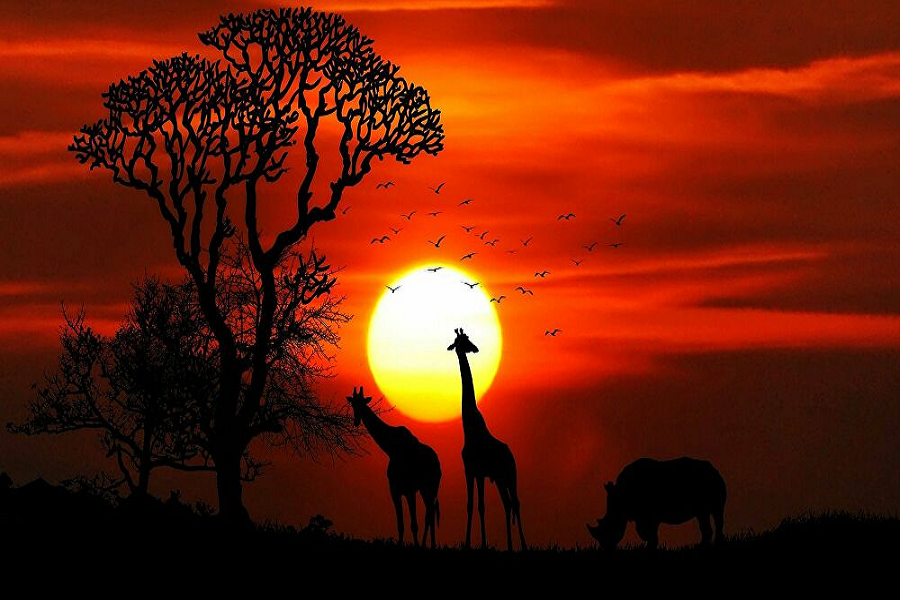It is well known that pro-Saharan sentiment is well rooted in Spanish society, equivalent to pro-Palestinian, or pro-Cuban sentiment. Despite these sensitivities, however, Spain does not fight with Israel or the United States. The former Majorcan ambassador to Morocco,Jorge Dezcallar, notes in his last book that “The problem lies in knowing how to combine these elements in fair doses (…) within the framework of a complex relationship where the passionate aspects are too often imposed on the cold rationality required by foreign policy”.
Spain – Morocco relations:
The trade balance with Morocco has been growing in recent years at the rate of 2% last year to seven billion exported goods.
At the same time, the presence of Spanish companies in the neighbouring African country is notable in sectors such as renewable energy, the automotive industry, and agri-food. Mallorcan companies are present in the tourism sector, for instance, Meliá, Iberostar, RIU and Barceló, among others.
Moroccans are the most numerous foreign population in Spain with more than 700,000 people, and the first also in the Balearic Islands, with more than 50,000. These numbers are somewhat elastic because nationalized individuals no longer count as foreigners in the census and are camouflaged in the actual data, so the wider Moroccan community is even larger.
In recent years, Spain, through the European Union, has effectively chosen Morocco as the police of its southern border, either through conventions or through direct assistance. The Moroccan authorities exercised strong control over their northern border despite apparent internal wear and tear; but it was a benefit to his neighbours. The sub-Saharan population arriving in Morocco encountered a retaining wall and this high level of security exercised by Morocco was often questioned.
This relationship also found expression in strategic collaboration in counter-terrorism: Morocco for its experience and maturity in the fight against terrorism has in recent years exercised “radar” for France and Spain in the detection of lone wolves, terrorist operations on Spanish soil or provided high-level information on certain plots. This assistance has been extended to other European Union countries such as Belgium or the Netherlands.
Roots of the conflict:
In February of this year, I warned in my column of the consequences of the Trump administration’s recognition of Morocco’s sovereignty in Western Sahara. ” As Spain is so close to the dispute it is necessary to declare its position. In that sense, Spain is obliged to take sides before it is too late. It is not far-fetched that tomorrow Paris might inaugurate a diplomatic representation in Dakhla. In that case, what will Spain do?”.
Spain has kept its decision in the freezer during these months. It has allowed the cancelling the high-level summit between the two countries because of the statements of the former vice president and finally the screw-up with “GhaliGate”.
Meanwhile, well-placed countries such as France have taken firm steps on this issue and bet on Morocco underpinning its position at the diplomatic and political level.
And now that?
Two neighbouring countries can’t afford “patio tantrums”, there’s too much at stake. It’s time to practice politics and diplomacy in capital letters. The current conflict begins and ends in the Sahara, and in that sense, Spain has to act as a mediator. It needs to do so in concert with the United Nations and push for a referendum with the appropriate guarantees in the area. Countries involved in the conflict have to put their cards on the table; it is not worth papering over conflicts relating to the Problem of Sahara.
More than two generations lost in the desert, living in terrible conditions, lost and forgotten looks that only appear in the fleeting headlines. Common sense, humanity, and the belief in any God or something superior urges us to rescue these people from oblivion.
The Morocco-Spain conflict will pass, like other conflicts of the past. Relations between the two countries will improve by economic and strategic imperative. The southern border will be safer again and there will be no more waves “for a season.” But we will not have learned anything from this nth conflict if the deeper problem is not solved.







